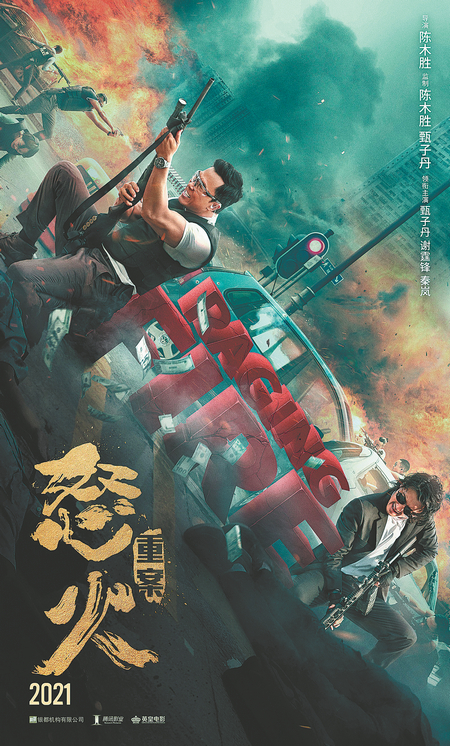

New situation
Liu said film fans sometimes yearn too much for the glory days of Hong Kong cinema in the 20th century. In the early 1990s, the city produced an average of 175 movies annually, four times the number last year.
The boom in the 1980s and '90s coincided with the ready availability of investors and talent, access to markets at home and abroad and more important a lack of competitors. As these factors have changed significantly in the past 30 years, decline was inevitable, according to Liu.
He called for a "reasoned view" of the current situation, adding that it is remarkable that Hong Kong can still produce several memorable films each year.
There has been a noticeable decline in iconic action films made in the city, which brought actors such as Bruce Lee and Jet Li to the world stage. Hong Kong is no longer a place where performers are willing to risk life and limb for a stunning shot, Liu said.
To keep moviegoers in suspense, filmmakers may have to work harder on intellectual engagement and elements of surprise, he said.
Raging Fire reprises the days of the fighting spirit. Yen, who starred in the Ip Man films, a series of Hong Kong biographical martial arts movies centered on grandmaster Ip Man (1893-1972) relaunches his battle in a modern city. He demonstrates classic impromptu use of a bulletproof vest and a plastic bag soaked in sewage, and even uses piano keys as weapons.
In a recent bloopers video, Yen was captured telling fellow actor Benjamin Lam to punch him harder during a fight scene in a sewer to achieve a better shot. Yen said he felt dizzy afterward.
The film's links to a classic crime story also contributed to moody cinematography from Edmond Fung, who said complex and dangerous scenes featuring car chases, gunfights and explosions were designed to have maximum impact. These scenes called for concentration, dedication and precise teamwork.
Fung said that early one morning, the actors and crew of Raging Fire were pressed for time, as they needed to complete a scene in which a police squad rested and chatted after a wild night of pursuit.
He and Benny Chan used a police vehicle prop, with monitors on the dashboard, and steadily drove through actors and actresses on the set, as performers read their lines.
"This way, we got the best sequence as quickly as we could," said the renowned cameraman behind New Dragon Gate Inn (1992) and Operation Red Sea (2018), the seventh highest-grossing film in China with 3.65 billion yuan.
Kinson Loo, CEO of Z CAM in Shenzhen, Guangdong province, whose cameras are widely used in action scenes, said anyone who visited a movie crew on set would be impressed by Hong Kong filmmakers' flexibility and working spirit. Loo has worked with film producers around the world.
Loo said crews react to unexpected situations extremely quickly and take the minimum amount of time to reshuffle a schedule, reprioritize and relocate.
Director Wong Jing said Hong Kong filmmakers always make every effort to do their best. Martial arts have been "borrowed" by many filmmakers overseas, mostly for digital effects. "Audiences still find it different seeing our actors in real action," he said.
"I never believed that Hong Kong cinema had died. It's been here all the time, being welcomed by some. We make small breakthroughs one film at a time."